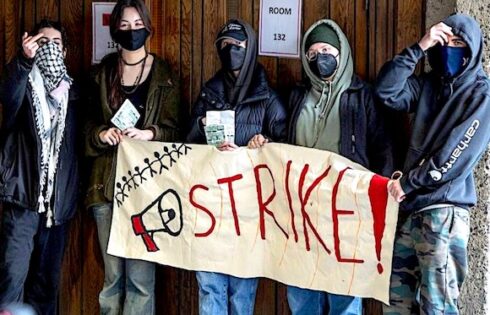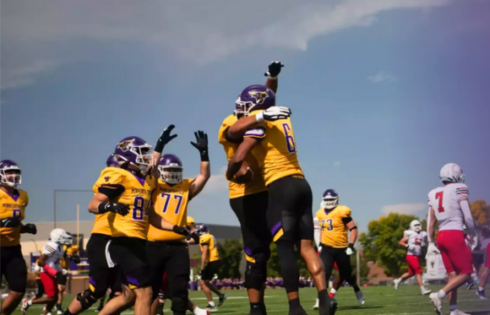
A University of California-San Francisco researcher says that Islamophobia in the United States is literally a public health issue as it’s making Muslims ill.
Dr. Goleen Samari of the school’s Bixby Center for Global Reproductive Health wrote about this issue two years ago and claims she received “an onslaught of hate mail and packages” along with “countless threats” to her family.
Now, she says Donald Trump’s rise to the presidency “coincides” with rates of anti-Muslim sentiment “that easily surpass the modern peak reached after 9/11.” (Try to ignore the typo in The Sacramento Bee’s article title.)
Her source? The Southern Poverty Law Center. Yes, that Southern Poverty Law Center.
Samari also furthers the narrative of the so-called “Muslim ban” (hint: there’s no such thing), the upholding of which by the US Supreme Court “has further cemented” hatred of those who practice Islam:
It’s not hard to understand how facing demonization and fearing that you might become the victim of a hate crime would be detrimental to your health. A recent study finds that religious discrimination targeting Muslims is significantly associated with psychological distress, symptoms of depression, higher levels of fear and anxiety, an unhealthier diet and worse blood pressure. Among women with Arabic names in California who gave birth within 6 months of 9/11, there was an increase in premature births and low birth-weight babies. There was no such increase for other women.
Given the media narrative before and since Donald Trump’s election, one could easily believe that Muslims suffer the most religiously based hate-related actions and crimes. However, this has not been, nor is presently, the case. The number one target of religious hate crimes by far remains those who practice Judaism.
In 2014, over 58 percent of religious hate offenses were those against Jews. In comparison, a little over 16 percent were anti-Muslim in nature. In fact, in 2015 the very University of California system which employs Dr. Samari “won” the distinction of having four of the top five anti-Semitic universities in the country: UC Santa Cruz, UC Berkeley, UC Davis, and UCLA.
A survey from 2010 noted that
Jewish students in California found them to feel ‘physically unsafe, emotionally and intellectually harassed and intimidated by peers and professors, isolated from their fellow students, and unfairly treated by faculty and administrators’. Their concerns are not felt to be taken as seriously as those of other minorities. ‘80% of all respondents expressed the belief that events, exhibits and campaigns that demonize Israel could incite violence against Jewish students on their campus; while several reported that it already had’.
If Muslims in the US and elsewhere must grapple with the effects of radical Muslim fundamentalism worldwide, Jewish individuals bear the “burden” of whatever actions the country of Israel undertakes. Indeed, those who engage in anti-Semitic behavior often cloak their hatred as “anti-Zionism” and rationalize a difference between criticizing Israel the state and Jews as individuals.
Nevertheless, unlike Samari’s claim of a veritable social and medical apocalypse for Muslims, a 2017 report on anti-Semitism and its mental health effects notes that Jews who experience such typically utilize common coping mechanisms associated with any other sort of bullying — such as seeking out support from others.
Interestingly, given what Dr. Samari has written in the past should we “naturally” expect a percentage of Jews who experience anti-Semitism to resort to violence? Just replace “Jew”/”Jewish” for “Muslim” from this abstract:
“For example, anti-Muslim sentiment has promoted discrimination against Muslims, while also serving to marginalize and stigmatize Muslim communities. These conditions limit the social resources, like social cohesion, that Muslims have access to and make political violence more appealing to some.”
MORE: Islamophobia is ‘manufactured’ by ‘hate profiteers’
MORE: ‘Islam needs Islamophobia’
IMAGE: Gerard van der Leun/Flickr.com
Like The College Fix on Facebook / Follow us on Twitter







Please join the conversation about our stories on Facebook, Twitter, Instagram, Reddit, MeWe, Rumble, Gab, Minds and Gettr.